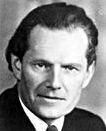 |
||||||||||||||||||||||||||||
|
|
||||||||||||||||||||||||||||
|
|
|
||||||||||||||||||||||||
|
The Judeo-Christian God is a God who made a covenant with His people, first a relationship in pre-history and the Old Testament, including His people Israel, and second a new covenant through His son. In the Calmeyer context, the common thread is obedience to Law, inspired not just by legislative legalism, but my moral law and standards that make law “justice.” |
|
"The Jewish (and later Christian) alternative to pagan social order is the Covenant: God in his love assigns rights to every human being, and establishes laws for the protection of the weak and helpless. Covenant is a concept alien to Islam, for by definition a God of covenants places a limit on his own power and enters into a partnership with a human society. The all-transcendent Allah does not stoop to make covenants with mere humans; not so YHWH of the Hebrews. No longer can the Roman paterfamilias command the death of his own children in the little empire of his home; the covenant protects every member of society directly. Because the covenant is expressed through laws, and laws require reasoning, the God of covenants must be a God of reason." Spengler |
||||||||||
|
Is Divine Law something that leads inexorably to a Theocracy? Is it the ultimate principle, like the 10 Commandments ? Is it Natural Law that states that our rights as human beings are given to us by a Creator, and not by the State ? |
||||||||||
|
What is Natural Law and what are inherent or “unenumerated rights” ? We are at an extremely critical juncture in America’s preservation of natural rights, now being questioned as never before as liberal governments seek to strengthen the ability of the State to regulate and control vast swaths of previously private behavior and business transactions. ... Elena Kagen, candidate for Supreme Court Justice, stated that she didn’t believe in rights that are inherent to us, only in rights as granted by the Constitution and by the Law itself. Yet America’s individual rights are quite clearly not at all subordinated to the State, most of them are inherent, as seen in:
These two founding documents of the American system are loosely based on the Magna Carta, the charter of France’s Charlemagne. But this is the keystone of what makes the United States unique: Americans are not granted rights by government or by the Constitution. Peoples’ rights originate with our very humanity. The People are not subjects. The People are the original author who grants power to government institutions. Most importantly, that which is not delegated is retained by the People. Because of this, the majority cannot abrogate basic rights of the individual for the general benefit. The individual has freedom of conscience, freedom of expression, freedom of idea, and freedom of action that does not injure another. It is not this way in European democracies, such as France. They believe that the individual surrenders his inherent rights for superior civil rights and security. Ergo, the individual can be ruled by the majority and the general benefit. |
||||||||||
|
Excerpts from The Declaration of Independence |
||||||||||
|
This is quite different from Islam, or from any Deist system (like the Nazis) who used the name of God for various purposes, but had no legal covenant relationship with God that super-ceded and super-encompassed the written law. Scripture is the written law, but the difference between being “merely legalistic” versus being “morally judicious” is a matter of having more than a blind understanding of written words. Again, without Natural Law there is no mediator, no paraclete, no advocate with God. again, from Engler: |
||||||||||
|
Mainstream Islam rejected Greek-derived philosophy at the turn of the 12th century, when Abu Hamid al-Ghazali established a theology of divine caprice. In the normative Muslim view of things, Allah personally and immediately directs the motion of every molecule by his ineffable and incomprehensible will, according to the al-Ghazali synthesis, directly and without the mediation of natural law. Al-Ghazali abolished intermediate causes, that is, laws of nature, leaving great and small events to the caprice of the absolute tyrant of the universe. ... What is it that unites Catholic Thomists and evangelical fideists (as well as observant Jews), but divides all of them from Muslims? It is the Biblical belief that God loves his creatures. Heavenly bodies are not deities, but rather lamps and clocks for human benefit. That is a dogmatic assertion on the strength of Biblical revelation, not a logical conclusion. A loving God, in the Biblical view, places man in a world that he can comprehend, which is to say that God establishes order in the universe out of love for humankind. We live in the best of all possible worlds (that is, a comprehensible one), Leibniz argued, because a good God would not maroon us in the second-best version. This implies that if God were not good, the world might not be as hospitable to humans as it is. This is unimaginable to Christians or Jews, but not to Muslims, who think that Allah can make any sort of world he wants, or indeed a different world from one day to the next. |
||||||||||
 |
|||||||||||||
|
|
|||||||||||||
 |
|||||||||||||
